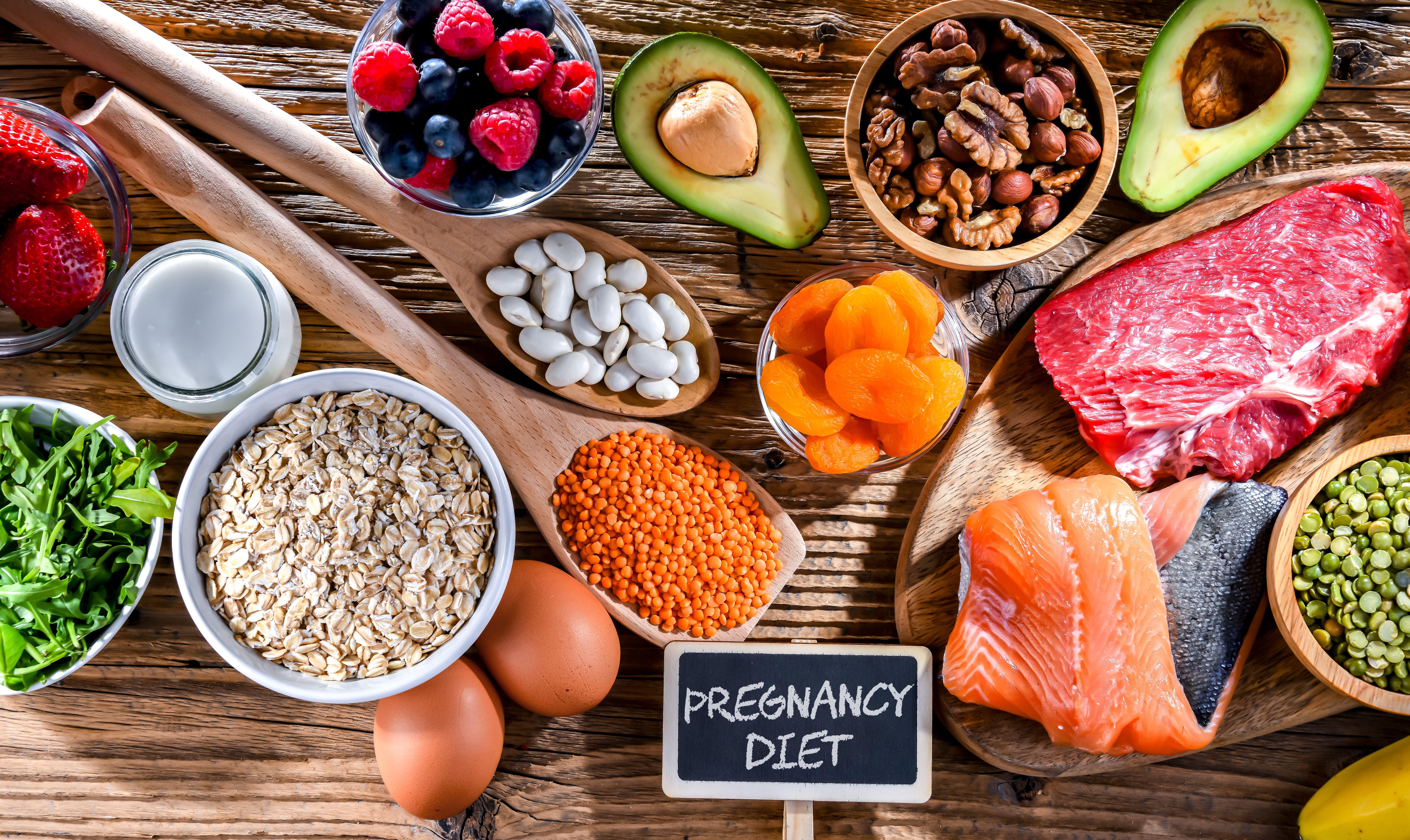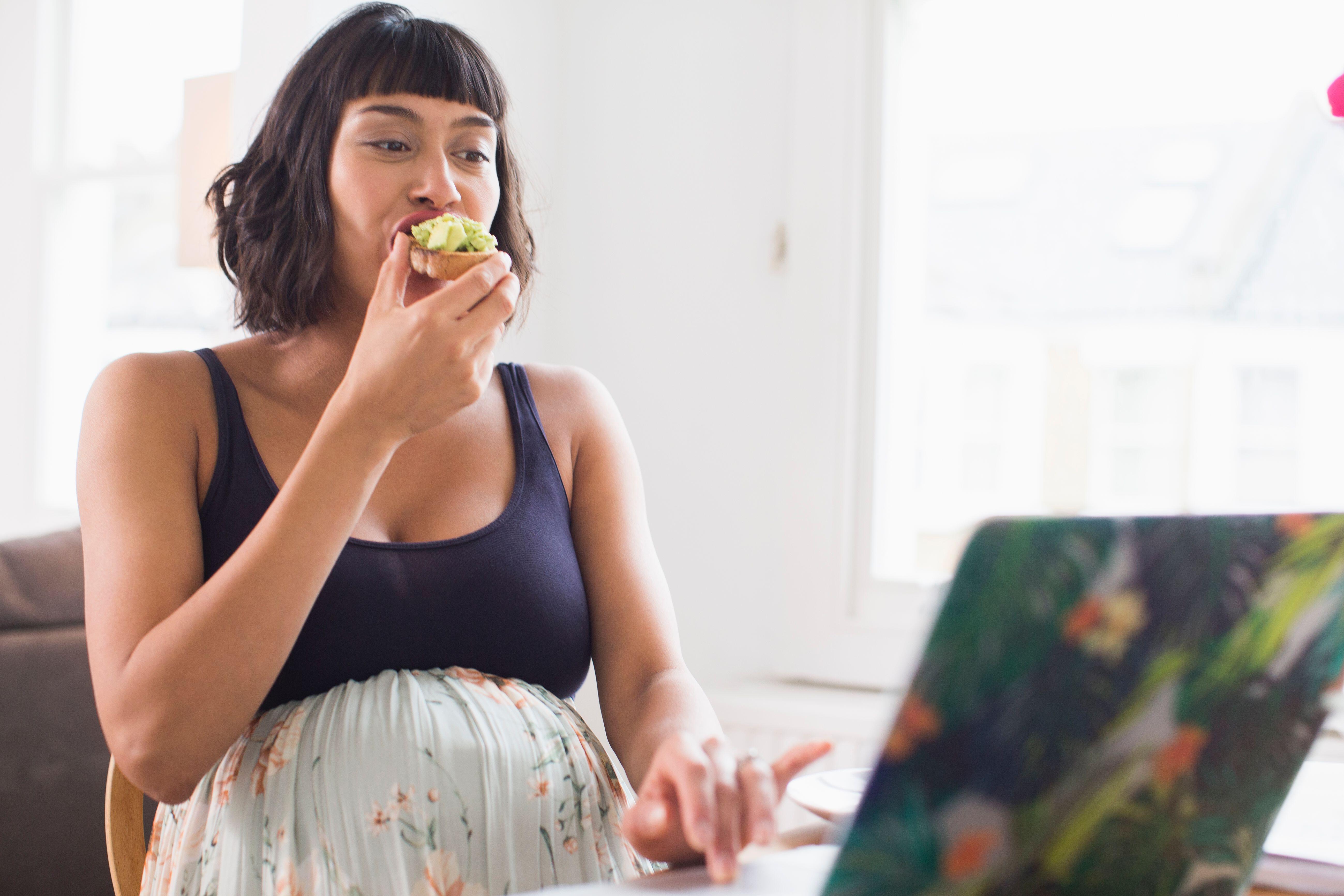
The British Nutrition Foundation (BNF) has published 'Diet in Pregnancy', a new guide outlining the latest academic research and recommendations for healthy nutrition during pregnancy.
Described as a ‘roadmap for good nutrition for parents and their babies’, the paper highlights key nutrients essential for a healthy pregnancy, including protein, complex carbohydrates, specific fatty acids, and vital vitamins and minerals.
It also provides recommendations on supplementation, food safety, and weight management.
“Dietary advice that encourages adequate intakes of the wide range of nutrients that contribute to maternal and foetal health, emphasising foods rich in folate, iodine, iron, calcium, and vitamin D, is crucial,” says Sara Stanner, science director at the BNF.
“But while many pregnant women and women trying to conceive are already aware they need to take folic acid and vitamin D supplements, as well as eat plenty of fruit and vegetables, there are many important dietary considerations that are less well-known,” she points out.
“Studies show significant numbers of women don’t get all of the nutrients they need for the best outcomes in pregnancy, so being aware of all your dietary needs can help support you and your baby’s health.”
Here, Stanner shares some of the less well-known dos and don’ts of pre-conception and pregnancy nutrition…
1. Do eat vitamin C-rich foods with plant-based, iron-rich sources
Pairing plant sources of iron like lentils, beans, or spinach with foods high in vitamin C, such as bell peppers, tomatoes or citrus fruits, can boost iron absorption, says Stanner, who explains: “Many people are surprised to learn that iron from plant-based sources isn’t as easily absorbed by the body as that from meat.
“Pairing vitamin C-rich foods with iron-rich foods is particularly important in pregnancy, when iron is needed to support the growing baby and placenta.”
If you follow a plant-based diet, she says consistently making this pairing a part of your daily meals could help reduce the risk of iron deficiency anaemia.
2. Do eat portions of fish the size of your whole hand

Two weekly servings of oily fish like salmon and sardines is an excellent source of DHA, an omega-3 fat that plays a vital role in the development of babies’ brains and eyes, especially in the third trimester, Stanner explains.
She says a cooked portion should be about the size of your whole hand (roughly 140g), and if you don’t eat fish, a daily supplement suitable for pregnancy providing 450mg of DHA from 20 weeks onwards is a good alternative, and is especially important for vegetarians and vegans as DHA isn’t usually found in plant-based foods.
“Getting enough DHA is one of the lesser-known but important steps for supporting your baby’s neural development,” she stresses.
3. Do prioritise iodine-rich foods
Stanner says iodine is often overlooked in pregnancy, but it’s essential for babies’ brain development, and she stresses: “Ensure you build up good iodine stores pre-conception to support a healthy pregnancy.”
White fish and dairy products are the main sources of iodine, and women on a plant-based diet should choose fortified dairy alternatives. If you’re avoiding dairy foods and fish, Stanner suggests considering an iodine supplement, and points out that iodine isn’t currently added to all plant milks in the UK, and the amount varies, so it’s important to check labels to ensure it matches what’s found in cow’s milk.
4. Do make sure you get enough calcium

Calcium plays a vital role in building babies’ bones and teeth, all while protecting the mother’s bone health during pregnancy. For most people in the UK, dairy foods like milk, cheese and yogurt are key sources, and the BNF recommends aiming for two to three portions a day to meet mother and baby’s needs.
If you avoid dairy, make sure you choose alternatives that are fortified with calcium, for example plant milks and yogurts,” advises Stanner. “It’s also worth remembering that foods like tofu, green leafy vegetables, and almonds can contribute to calcium intake.”
5. Do drink extra fluids
Staying well hydrated during pregnancy is essential and often underestimated, says Stanner. Fluids support growing babies and help manage common issues such as constipation and fatigue. Aim for at least eight glasses a day – water is best, but milk and small amounts of 100% fruit juice can also contribute.
“Carrying a refillable bottle with you can make it easier to sip throughout the day,” Stanner suggests. “Keeping hydrated helps to maintain amniotic fluid levels and supports the increased blood volume needed during pregnancy.”
6. Don’t take cod liver oil supplements
Although cod liver oil sounds like a healthy choice, during pregnancy it’s best avoided, warns Stanner. She explains that cod liver oil contains high levels of vitamin A in the form of retinol, and too much of this form of vitamin A can be harmful to a developing baby, particularly in the early stages.
“While vitamin A is important for foetal development, it’s better to get it from food sources like meat (except liver), oranges and green vegetables, which contain beta-carotene, a safe form of vitamin A.
“Always check labels and speak with your GP or midwife before taking any supplement.”
7. Don’t exceed 200mg of caffeine per day
Caffeine is found not just coffee and tea but also chocolate, energy drinks and some cold and flu remedies. However, during pregnancy high intakes of caffeine have been linked to increased risk of miscarriage and low birth weight, warns Stanner.
“It’s recommended to keep your intake below 200mg a day, which is around two mugs of instant coffee or three to four mugs of tea,” she says. “A surprising number of people don’t realise how quickly caffeine can add up, so being mindful of total intake from all sources is really important for a healthy pregnancy.”
8. Don’t eat cold smoked or cured fish unless thoroughly cooked
Some types of fish, such as cold smoked salmon or cured fish, can carry listeria, which is a bacteria that can be harmful during pregnancy. While listeriosis is rare, it can cause serious complications, so it’s safer to avoid these foods unless they’ve been cooked until steaming hot.
“The good news is that canned fish, thoroughly cooked fresh fish and fish in dishes like pies, stews or curries is safe to enjoy.”
She also warns the amount of tuna pregnant women eat should be limited to no more than four cans a week, due to high levels of mercury.

9. Don’t start a weight-loss diet during pregnancy
Stanner stresses pregnancy is not the time to cut calories or aim for weight loss, even if you’re overweight. “Your body needs additional energy and nutrients to support your health alongside your baby’s growth and development,” she says. “Instead of focusing on weight, aim to eat a balanced diet with plenty of vegetables, wholegrains, lean proteins – for example chickpeas, and healthy fats like rapeseed oil and avocado. Focus on nourishment, not numbers on a scale.”
The common spice found to lower cholesterol and support heart health
Your morning coffee is putting pep in your step — and making you happier too
Jana Duggar announces first pregnancy with husband Stephen Wissmann
9 surprising consequences of dehydration
The five bladder cancer warning signs as new NHS treatment approved
Warning for spice that can interfere with prescription medicine effectiveness







